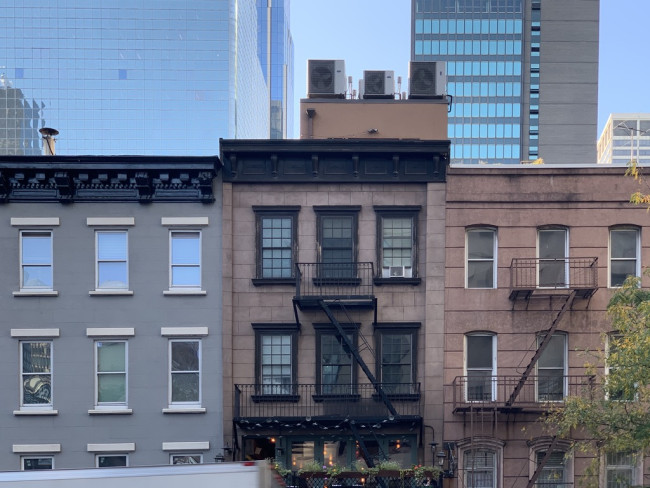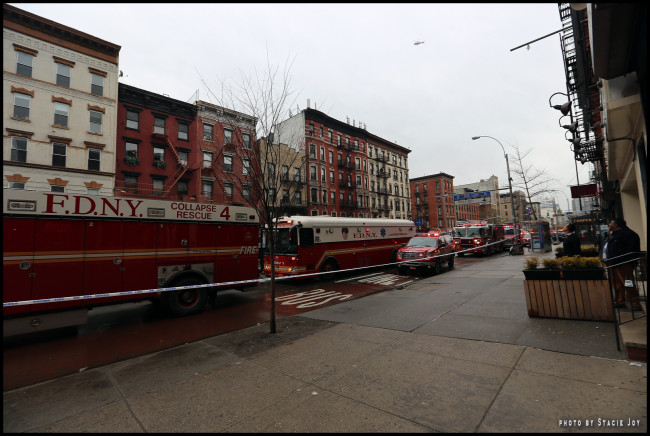Why the gas in your NYC apartment could be shut off long-term—and what you can do about it

The larger the building, the longer it will likely take to get the gas turned on, because the whole building will need to be inspected.
iStock
If the gas to your building has been shut off, you may find yourself cooking on a hotplate and wondering how long you’ll have to put up with it, and whether you have any recourse.
Unfortunately, you’re far from alone. More New Yorkers are finding themselves without gas because the city’s gas companies and the Department of Buildings have become more cautious in response to leaks in recent years, according to Sam Himmelstein, a lawyer at Himmelstein, McConnell, Gribben, Donoghue & Joseph (and Brick Underground sponsor).
“They have gotten much stricter about what they do when they find a gas leak,” Himmelstein previously told Brick Underground. “They’ll order all the gas shut off, and conduct a roof-to-basement inspection to see if there are leaks anywhere.”
Serious gas explosions in Harlem in 2014 and the East Village the following year killed several people. Local Law 152 was passed in response, which requires buildings to have their gas lines inspected every five years.
However, a spokesperson for the Department of Buildings disputes that connection. She says there hasn’t necessarily been an increase in the number of buildings with gas shutdowns.
“Our main priority is always safety, but every situation is different when it comes to which gas lines are shut off,” says Lisa Amoia, deputy commissioner for the Department of Buildings.
Read on for scenarios that would cause your building’s gas to be shut off for extended periods, and what you can do about it.
The entire building needs to be inspected
When a gas leak is found, gas for the entire building is often shut off, rather than the specific line where the leak is found, and the whole building will be inspected.
Obviously, if you live in a large building, like the 700-unit Upper East Side building, where gas was cut off back during 2016, it will take much longer for service to be restored than a smaller building.
The system has to be brought up to code
If your building has an outdated system, repair work will require a master plumber—an expert plumber licensed by the Department of Buildings—to assess the situation, and the work will be more extensive.
“If a gas system needs to be brought up to code, it can require a new boiler, fixtures, and pipes to be replaced rather than repaired. This goes beyond the scope outlined for the plumber, so an engineer and architect have to get involved,” says Amoia.
Illegal gas lines were found
If faulty work or illegal gas lines are found, it will slow down the repair process, but the exact timeline depends on how extensive the work is and who has to get involved.
What if you discover illegally installed gas lines in your apartment or house? The only way you can legally and safely use them is to hire an architect and engineer to draw up plans and submit them to the DOB for approval. To learn more about what to do, read: How do you make an illegally installed gas line in your NYC co-op legal and safe?
Miscommunications between agencies and your landlord
When a utility (Con Edison or National Grid) shuts off gas access due to a leak, a master plumber is brought in to assess the situation. From there, they file an emergency work notification in DOB Now (an e-filing system released in October 2018), and then completes the needed work.
After the work is finished, it’s up to the utility's discretion if they want to perform a gas test for the entire system or resume service immediately. Once DOB receives utility approval, a limited alteration permit issued within a day, and the DOB conducts a final inspection.
The process seems clear-cut, but with city agencies, utility companies, and landlords all in play, miscommunications can happen.
“Ultimately, it’s up to the landlord to ensure gas is restored,” says Amoia. So if your landlord isn’t prompt in responding to DOB or utility’s requests, expect delays.
What can you do to get service restored (or comped for the inconvenience)
There’s strength in numbers so your best bet for resolution is to form a tenant association, Himmelstein tells us.
You’re likely to get some resolution from your landlord if you confront him or her as a group, typically a 10 to 20 percent rent abatement that’s retroactive to when the gas was originally shut off.
If your landlord doesn’t budge, you could band together and go on a rent strike, which would result in your landlord taking you to housing court and allows you to plead your case, most likely resulting in a rent abatement. In the past, renters feared retribution for withholding rent, but the new rent reforms have taken away much of the power of the so-called tenant blacklist.
For more information on how long it will take your gas to be restored, you can attend the Department of Buildings’ customer service night, a weekly event held on Tuesdays in every borough where you can ask questions regarding the process and your repair work face-to-face. You can also access the status of the repairs via the DOB’s website, and the Building Information System.
You Might Also Like


























